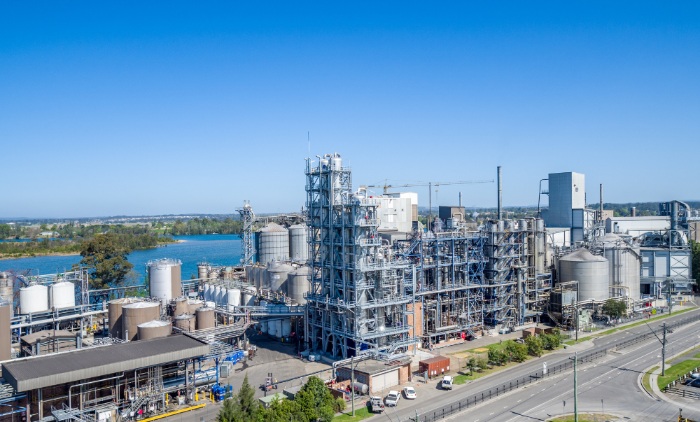Australian family-owned Manildra Group is celebrating the highest commitment to sustainable ethanol production worldwide with their continued certification of the RSB (Roundtable of Sustainable Biomaterial) at their state-of-the-art seven-column distillery, located at their world-class Shoalhaven Starches site in Nowra, New South Wales.
In 2012, Manildra Group was the first plant in the world to receive the internationally recognised sustainability certification from the RSB, and this year completed their third re-certification.
Demonstrating the highest commitment to sustainability, the RSB certification requires Manildra Group’s grain neutral spirit production to be conducted in an environmentally and socially responsible way, while reducing greenhouse gas emissions.
“It was such an exceptional achievement to be the first ethanol plant in the world to be awarded the RSB certification, and this news of continued re-certification demonstrates our family-owned Australian businesses’ unwavering commitment to sustainability,” said Manildra Group Head of Ethanol, Debbie Forster.
The RSB is a full member of the ISEAL Alliance comprised of an international multi-stakeholder group of farmers and producers, non-government organisations, experts, governments, and inter-governmental agencies focused on the global sustainability of bio-based fuel and material production and use. Manildra Group maintains this certification through the implementation of RSB’s environmental, social, and economic principles and criteria.
“Our certification is a great achievement for the bio-economy as it demonstrates that ethanol can be produced in a way that not only dramatically reduces greenhouse gas emissions but ensures real positive social and environmental benefits. We are very proud to set the standard for truly sustainable ethanol production globally,” said Ms Forster.
RSB’s approach is internationally renowned and recognised widely as the most trusted, credible, and practical certification for the bio-economy, with support from NGO’s including WWF, Blue Angel, NRDC and others. Additionally, is it recognised in Australia’s biofuel regulations ensuring that ethanol producers demonstrate that their operation is actively creating positive outcomes for people and the planet.
Celebrating the re-certification of Manildra Group for another five years, RSB’s Executive Director, Elena Schmidt said, “We are thrilled to see RSB’s first ever operator re-certified for another five years. Manildra Group’s continued commitment to RSB certification is a testament to their focus on sustainability in their community and operations. As true ‘pioneers’ of sustainability in the bio-economy they have served to inspire and encourage others around the world to follow their example.”
Manildra Group’s neutral-tasting, odourless premium grain neutral spirit range is the blank canvas base from which craft and large-scale distillers can create world-class spirits including vodka, gin, liquors, and ready-to-drink packaged alcohol. With premium 100 per cent Australian, GMO-free wheat hand-selected as feedstock, wheat fermentation experts methodically test the grain neutral spirits to ensure they meet Manildra Group’s quality standards – the most stringent in the industry.
For more information on Manildra Group’s product range contact ethanol.orders@manildra.com.au or find more information on the company’s RSB certification here.
Above image: Manildra Group partners with thousands of Australian farming families to produce high-quality ethanol from 100 per cent Australian wheat // Photo by Taylah Hudson

Above image: Manildra Group’s world-class seven column ethanol distillery is located at the Shoalhaven Starches site in Nowra, New South Wales // Photo by Dean Holand.
The Manildra Group is an Associate Member of the Drinks Association.